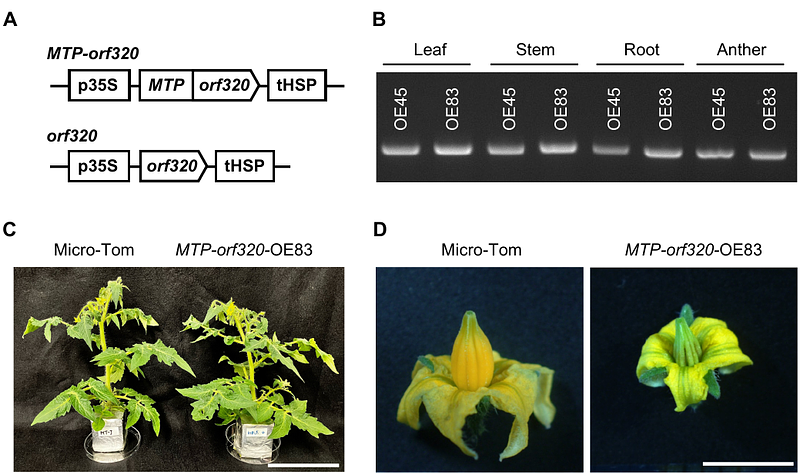Relationship Between Open Reading Frame 320, a Gene Causing Male Sterility in Tomatoes, and Cytoplasmic Male Sterility in Potatoes

Relationship Between Open Reading Frame 320, a Gene Causing Male Sterility in Tomatoes, and Cytoplasmic Male Sterility in Potatoes
Nakajima, R.; Sanetomo, R.; Shirasawa, K.; Ariizumi, T.; Kuwabara, K.
AbstractCytoplasmic male sterility (CMS) is a phenotype wherein plants cannot develop normal male organs because of mitochondrial genes. Several cytoplasmic sterility factors are suggested to be involved in CMS phenotypes in potatoes (Solanum tuberosum); however, reports on the relevant mitochondrial genes remain scarce. Many potato cultivars carry mitochondrial genes that cause CMS, resulting in pollen sterility, thereby limiting their use as male parents in breeding. Therefore, identifying the causal genes is crucial for potato breeding. In this study, we focused on the T/{beta}-type cytoplasm, the most prevalent genome type of potato worldwide, to explore mitochondrial genes involved in CMS in potatoes. We identified a novel gene, open reading frame 320 (orf320), in potato genotypes with T/{beta}-type cytoplasm by comparing the mitochondrial genomes of potatoes. Functional analysis of tomatoes showed that overexpression of orf320 with a mitochondrial transit peptide induced male sterility phenotypes, including abnormal anther development and pollen abortion. Furthermore, an investigation of orf320 in 126 potato cultivars revealed that this gene is specific to the T/{beta}-type cytoplasm and is absent in investigated cultivars with other cytoplasmic types. These findings provide strong evidence that orf320 is a candidate CMS-causing gene in male sterility of T/{beta}-type cytoplasm, offering valuable insights for future potato breeding.